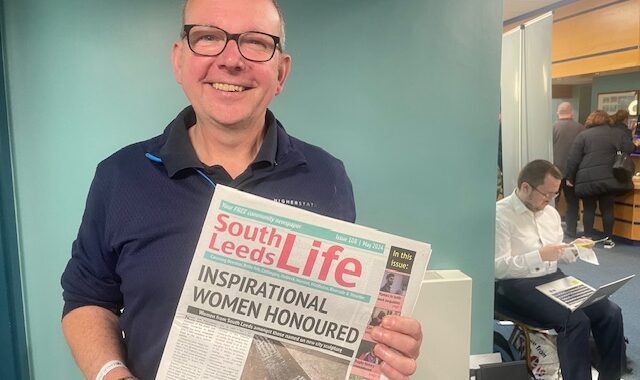Press Recognition Panel Consultation Meeting, Cardiff
The post-phone hacking media landscape continues to ripple with the effects of changes to media regulation laid out by the last government, and voted in with strong cross-party support. So far the new regulatory regime for the press envisaged by Leveson, and shaped by policy makers, is being resisted by most national commercial news publishers.
But forthcoming legal changes originally designed to nudge big publishers into joining a Leveson-compliant, Royal Charter-backed, regulator will also affect many small- and medium-sized news producers, too. The Press recognition Panel (PRP) is the independent body tasked with watching the watchdogs, regulating the regulators, and ensuring anyone applying to regulate an area of the news media does so in accordance with the new laws.
I helped organise, and attended, the recent consultation meeting of the PRP in Cardiff partly to try and figure out how what’s coming will affect people who run hyperlocal news sites. My colleague Emma Meese has usefully outlined her initial thoughts on the meeting, here. PodNosh also did good post on a previous meeting with the PRP here, and I’m going to try and give my take on some of his questions.
In this post I’ll write about:
- what the coming legal and regulatory changes will mean;
- who will be affected by them;
- what problems they might raise; and
- ways that community news producers might benefit from them.
What’s going on?
In order to get news organisations to sign up for a new regulator, those who drew up the legislation fiendishly built in a number of incentives and disincentives into the process of encouraging regulation.
The main “stick” with which news producers can be beaten if they don’t sign up to a PRP-recognised regulator is a legal one. Currently if a reader of the news takes a publisher to court the ordinary rules of litigation mean that whoever loses must pay their opponent’s litigation costs. After November 2015, it will become much easier for members of the public to take news publishers to court because in the future the publishers will have to pay the complainants’ legal costs whether they win or lose.
The main “carrot” offered to publishers is that if they belong to a PRP-approved regulator such complaints will be taken out of the courts system, and settled instead in a new form of arbitration delivered by an independent body.
Are hyperlocals affected by the changes (and if so, which ones)?
The Crime and Courts Act (2013) lays out who will be affected by the coming changes, who will be seen as a “relevant publisher”. It’s worth going through the different elements which outline which kinds of hyperlocal news outlet are likely to be subject to, and who is likely to be exempt from, the law.
- Firstly,“relevant publisher” means a “person who, in the course of a business (whether or not carried on with a view to profit), publishes news-related material”. It may seem obvious, but it’s worth pausing to point out that this definition seems to discount most publishers of hyperlocal news in the UK. Most people who produce online community news here do so informally, as a hobby, and are not “incorporated” as businesses or non-profit entities. So based on this wording I assume that only those community news producers who run their operations as businesses (either commercially or not-for-profit) are seen as relevant publishers.
- Secondly, and importantly, if you run your hyperlocal as a business you are only seen as a “relevant publisher” if you publish content “written by different authors”, and if your coverage is “subject to editorial control” (if someone is responsible for the content, presentation, and editorial decision to publish posts on your site). It’s very common for hyperlocals to carry content from others in the community, feature guest posts, and encourage participation from their audiences – not many are solely the product of one author. It’s also a pretty universal for hyperlocals to take their positions as editors and publishers of community news seriously and to vet material before it gets published. By these criteria I would suggest most community news sites run as businesses tick both of these boxes.
There is also a series of exemptions from the act which we’ll need to address. Schedule 15 of the Crime and Courts Act 2013 lays out who’s not covered by the new laws (it’s a huge PDF – scroll down to pages 283-4). We learn a few things here:
- This is not an issue for you if you are a publisher of a “special interest title” that relates to a particular “pastime, hobby, trade, business, industry, or profession” and “only contains news-related material on an incidental basis that is relevant to the main content of the title”. This strikes me as quite loose and ambiguous wording, but it may mean that those community news producers who focus on local cultural and arts content may be exempt for this reason.
- Public bodies and charities that publish “news related material in connection with the carrying out of its functions”. As some hyperlocals are run by charities such as Community Development Trusts, or out of University journalism schools, they may well find exemption here).
- You are also not covered by the Act if you are classed as a news-publishing “micro-business” which either operates as a “multi-authored blog” or only publishes news “on an incidental basis that is relevant to the main activities of the business”. A micro-business is defined as an organization with an annual turnover of less than £2 million and a staff of fewer than 10. Clearly even the most successful commercial UK hyperlocals meet these criteria. However most would not, it seems, be exempt as valid micro-businesses because of how they publish. There was some discussion of what constitutes a “multi-authored blog” as defined here during the session. From my notes it seems to me that the main criterion outlined by PRP representatives for determining whether a blog is “multi-authored” or not is whether it is subject to overall editorial oversight and control. The publishing platform, blogging software, design and layout of the published work seem not to be relevant. As most commercial community news sites do have this kind of editorial oversight it seems unlikely that many would be exempt from the act on this basis.
What potential problems does this raise for the hyperlocal sector?
There are possible benefits to the coming changes for hyperlocals, for sure, but there are also potential burdens (administrative, financial, etc) to the sector at a time when many already work very hard, often making personal and professional sacrifices, to provide community news for little personal gain.
The consultation discussions in the meeting raised a number of problems that some community journalists may face:
- they must determine whether they are seen as a “relevant publisher” or not, and if so, whether they should join a regulator (e.g. this will necessitate getting to grips with the precise definitions of what the act calls a “business”, a “micro-business”, “editorial control”, a blog “written by different authors”, and a “multi-authored blog”);
- deciding whether to join a regulatory body, even if they are exempt from being seen as a “relevant publisher”. We were told at the consultation that other news producers would still be able to opt in to regulation, should they wish, as a way to access the extra-judiciary arbitration on offer. Where the precise boundaries would lie between journalist and non-journalist when deciding eligibility for this, however, is clearly still somewhat uncertain. The hyperlocal field is populated by a mixture of professionals and amateurs, full-time and part-time community journalists, some who produce news as part of their political activism, and some who take a more detached and objective stance. Working out who “deserves” to be allowed to opt in to press regulation in an era when the boundaries between news media and publics are dissolving at such pace will be tricky to say the least;
- the possible expense of joining an existing regulator. The prospective regulatory body IMPRESS seems like a possible home for some community journalists, positioning itself as a low-cost and accessible outfit, although they have not yet laid out what membership would cost.
- The work associated with being regulated. Because of the stage we’re at in the process, it’s as yet unclear what the administrative and other workload costs will come with regulation. For a sector which relies overwhelmingly on low-, or unpaid, labour the workload implications of (even light-touch) regulation may well be a burden;
- the potential hassle and expense of setting up a new, hyperlocal-specific, regulator from scratch. This was discussed briefly as a proposition should community news producers not be satisfied with IMPRESS’s offering. The PRP clearly hope for a patchwork of regulators serving different arms of the news industry, each tailored to the specific needs of each sector. One option would be for hyperlocals and their supporters to club together and form their own regulator, although such a plan may well be hampered by the extreme resource scarcity in community news. Media academic Máire Messenger-Davies, who has been involved with setting up IMPRESS, told the group that the expense of starting a regulator was “front-loaded” because of the admin and expenses costs associated with doing all the preparatory work. Such funds would principally have to come from outside the hyperlocal field, as would most of the on-going costs needed to run even a small regulatory organisation; and finally,
- the injustice of very small players being subject to a regulatory regime designed, in the first instance, to curb the transgressions of unethical national news journalists. The biggest problem I see with these developments is a broad one which is also pretty fixed and immovable at this point: that local community news producers (none of whom, to my knowledge, ever hacked a phone) are being affected by legislation that was drawn up in answer to abuses of power and intrusion by some national news journalists, editors, and proprietors. But there’s very little that can be done about this, at present, and to address such complaints to the PRP would be misguided. They didn’t draft the legislation or vote it in; they’re the ones who have to explain and implement it.
Some (pretty big) benefits to community journalists
There are, I reckon, potential advantages on offer here, too. They’re mostly rooted in an acceptance of the inevitability of the changes to come. As the PRP representatives at the meeting outlined, this legislation has already been passed and is currently being enacted. And it’s being enacted in a way which community journalists could turn to their advantage.
Contemporary community news in the UK is often characterized by a strong urge to provide independent, accurate, information about local life. It often covers local politics better than the mainstream press, significant numbers of community news journalists campaign on issues of public importance, and many investigate local elites, holding them to account when they step out of line. But, in the main, they do this from a remarkably precarious position, lacking in the editorial, institutional, legal, and financial support enjoyed by their professional counterparts. They also often suffer from poor visibility in their communities and are ignored by many politicians and policy makers.
Hyperlocals who aim to provide independent, and sometimes critical, local news to their communities are already vulnerable to those who’d seek to shut them up them in the courts, or bully them into silence with solicitors’ letters. As a sector community news producers now have the opportunity to work together, and with an appropriate and affordable regulator, who could now guarantee a degree of legal security not yet open to them. More speculatively, this collective action could have numerous other benefits such as affording hyperlocals greater visibility and credibility both within their communities and in policy circles.
As well as posing numerous sticky practical problems, then, I think the coming changes also offer many hyperlocals the chance of new protections from the threat of legal challenge, and possibly further advantages associated with forging a more prominent collective voice and identity.




